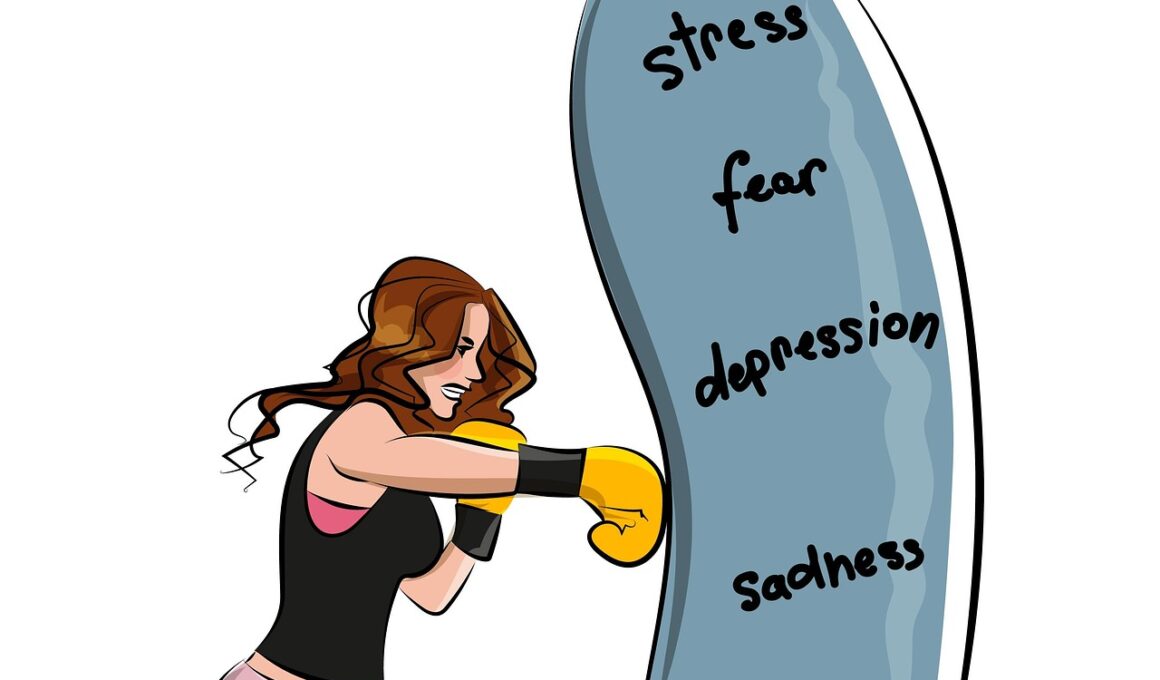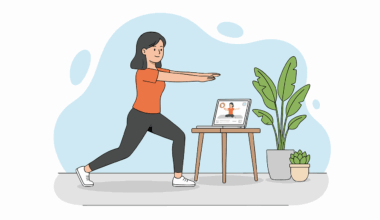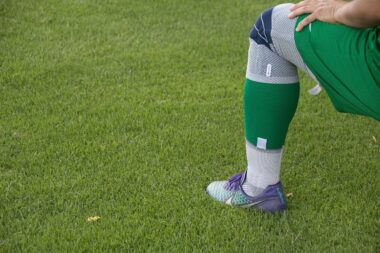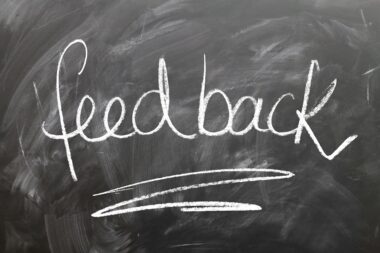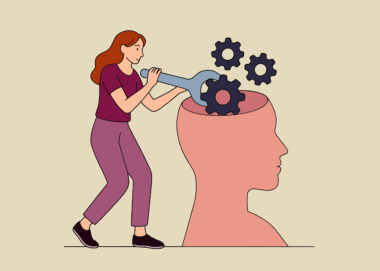Supporting Mental Health for Injured Recreational Athletes
Injured recreational athletes face numerous challenges that affect their mental health during recovery. A significant aspect of rehabilitation is understanding the psychological impact injuries have on an individual. Those who participate in sports often derive a sense of identity and purpose from their athletic endeavors. As a result, an injury can lead to feelings of frustration, sadness, and anxiety when the athlete is unable to perform. This emotional burden, if not addressed, may lead to longer recovery times or even future issues with reinjury. Therefore, mental health support should be integrated into injury recovery strategies. Supporting athletes’ mental well-being can significantly enhance their recovery experience. Strategies such as counseling, mindfulness practices, and physical rehabilitation exercises should be implemented appropriately. Moreover, social support from friends and family aids in alleviating emotional strain during recovery. Open communication with coaches and teammates can also provide an important support network. Recognizing the psychological dimensions of injury allows for more comprehensive recovery strategies that can promote overall well-being and effective rehabilitation techniques. Athletes must know they are not alone in their struggles and that mental fortitude is essential in overcoming adversity.
Injuries can significantly impact the mental health of recreational athletes; thus, it is crucial to recognize common psychological responses. Many athletes experience a spectrum of reactions, ranging from denial to anger and depression. Understanding this emotional journey is vital for both athletes and their support networks. Acknowledging the feelings of loss associated with being sidelined from sport activities is a critical first step in recovery. It’s important to foster resilience in athletes by helping them to set attainable, short-term goals. These goals can include daily physical activities that do not aggravate the injury, maintaining fitness where possible, or engaging in mental training exercises. Additionally, implementing cognitive-behavioral techniques can help athletes reframe their mindset toward injury. Positive self-talk and visualization can play an instrumental role in maintaining motivation. It is essential that athletes understand they can still engage in meaningful activities outside of their sport while recovering. This holistic approach helps build a new identity during injury recovery, emphasizing their worth as individuals beyond athletics. Mental health should be prioritized alongside physical health to achieve a successful and fulfilling recovery experience.
Strategies for Mental Health Support
Incorporating structured mental health support can significantly aid injured recreational athletes. One effective strategy includes professional counseling to guide athletes through their emotional recovery journey. Trained professionals can offer valuable coping mechanisms and insight into dealing with frustration, uncertainty, or sadness. Furthermore, group therapy sessions can provide a safe space for athletes to share experiences, fostering a sense of belonging and understanding. This collective sharing can alleviate feelings of isolation that often accompany injury. Another important aspect is utilizing mindfulness and relaxation techniques to help reduce stress and regulate emotions. Techniques such as meditation, yoga, or even simple breathing exercises can be beneficial during recovery. Educating athletes about these methods can empower them to regain control over their mental state. In addition, maintaining a supportive physical environment, such as encouraging family and friends to be present, can enhance emotional stability. Encouragement to express feelings and concerns openly further strengthens mental resilience. In sum, combining professional guidance with practical self-care methods creates a supportive framework that can effectively nurture an athlete’s mental health during their recovery journey.
Physical rehabilitation must be complemented by mental well-being initiatives to create an integrated approach to recovery. An athlete’s progress is often interlinked between physical achievements and psychological health. Acknowledging this connection encourages athletes to view recovery not merely as a physical battle but as a holistic process requiring attention to both mind and body. As athletes gradually return to their activities, maintaining realistic expectations is crucial. This phase demands ongoing mental health support to prevent the resurgence of anxiety or depression. It is equally essential for coaches to understand that an athlete’s readiness to return should be assessed not solely based on physical strength but also emotional stability. By establishing a plan that emphasizes mental readiness as much as physical fitness, teams can better prepare athletes for reintegration. This approach can enhance an athlete’s reintegration experience, reduce the fear of re-injury, and increase confidence levels. Integration of peer mentoring can also serve as a powerful reinforcement tool, allowing experienced athletes to offer insights and reassurance to those facing similar challenges. Ultimately, defined and realistic expectations lead to successful emotional and physical outcomes.
The Role of Coaches and Support Systems
Coaches and sports organizations play a crucial role in supporting the mental health of injured recreational athletes. Their influence extends beyond just training; they can foster an environment that prioritizes emotional well-being. Coaches must be trained to recognize signs of distress in their athletes, enabling them to offer timely support. Developing open lines of communication can create a positive atmosphere where athletes feel safe expressing their thoughts and concerns. Positive reinforcement and encouragement can significantly impact an athlete’s resilience during recovery. Furthermore, establishing injury rehabilitation programs that include mental health resources can enhance the entire recovery process. Such programs may involve workshops focused on psychological resilience, stress management, and coping strategies. Involving family members in these sessions can also create a broader support network that further strengthens psychological health. When athletes see their coaches actively engaging in their recovery—for instance, checking in regularly or providing resources for psychological support—they feel valued beyond their physical abilities. Therefore, a unified approach that prioritizes mental health can lead to improved recovery outcomes, reinforcing the athlete’s connection to the sport.
Returning to sports after an injury can be a daunting experience. Mental barriers often accompany physical readiness, and addressing these challenges requires targeted strategies. One practical method includes developing a return-to-play protocol that emphasizes a gradual approach to re-engagement. Athletes should be encouraged to set small, achievable performance goals that build confidence and control, preparing them mentally for competition. Visualization techniques can also be beneficial, allowing athletes to picture themselves performing successfully in their sport while overcoming fear or anxiety about reinjury. Moreover, mindfulness practices can help mitigate anxiety linked with performance pressure. Simple breathing exercises can promote calmness and focus, essential for returning to high-pressure scenarios. Building these mental skills equips athletes to handle the emotional ups and downs inherent in recovery. Importantly, regular follow-ups with mental health professionals ensure that athletes remain focused on both their physical and emotional journeys. Dimensions of mental health should be openly discussed as part of a comprehensive recovery plan, underscoring its importance to both athletes and their coaches alike.
Conclusion: Emphasizing Mental Health in Recovery
Integrating mental health discussions into sports rehabilitation processes is no longer optional but essential. There is a growing recognition among athletes and organizations of the interdependence of mental and physical health in successful recovery. By focusing on mental resilience, coaches and support systems can create an environment that values emotional well-being alongside physical performance. Regular workshops and education on mental health can prepare both athletes and coaches to respond effectively to psychological challenges during recovery. This proactive stance helps to demystify mental health struggles typically viewed as taboo within sports communities. It also reinforces the notion that seeking mental health support is a sign of strength, not weakness. Athletes should feel empowered to speak about their psychological experiences and reach out for assistance. Post-injury recovery does not simply equate to physical rehabilitation; it encompasses fostering a culture of openness towards mental health conversations, normalizing therapy, and utilizing performance psychology experts. In embracing this integrative approach, athletes can look forward to improved mental health outcomes and a smoother recovery process, ultimately leading to a deeper connection with their athletic identities.
The importance of addressing the psychological aspects of injury recovery cannot be overstated. Athletes who feel supported emotionally are more likely to engage fully in their rehabilitation.
